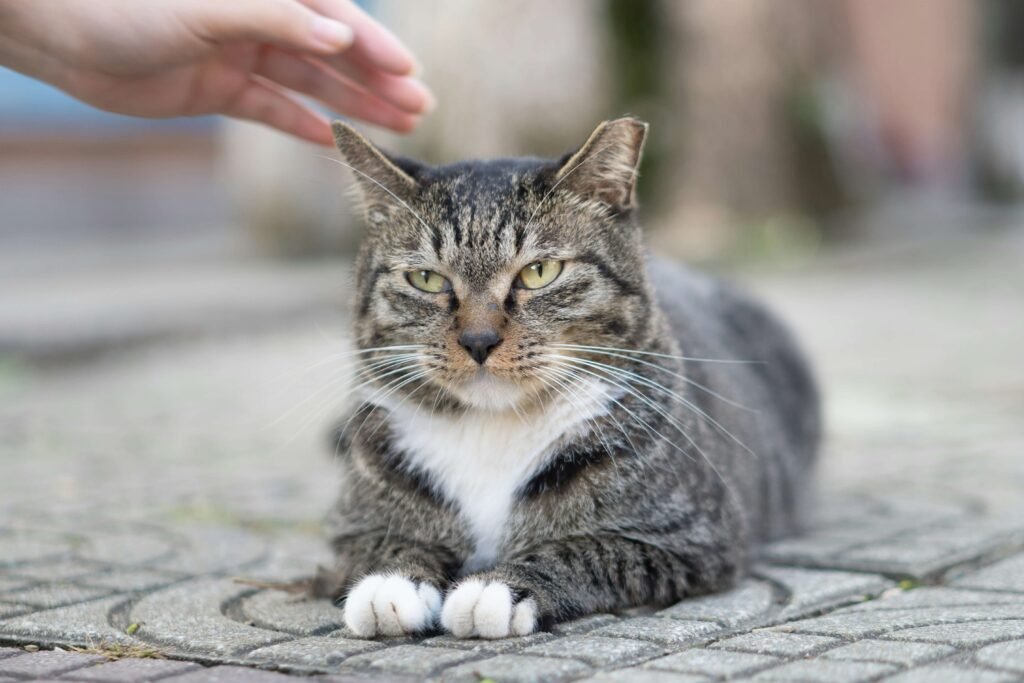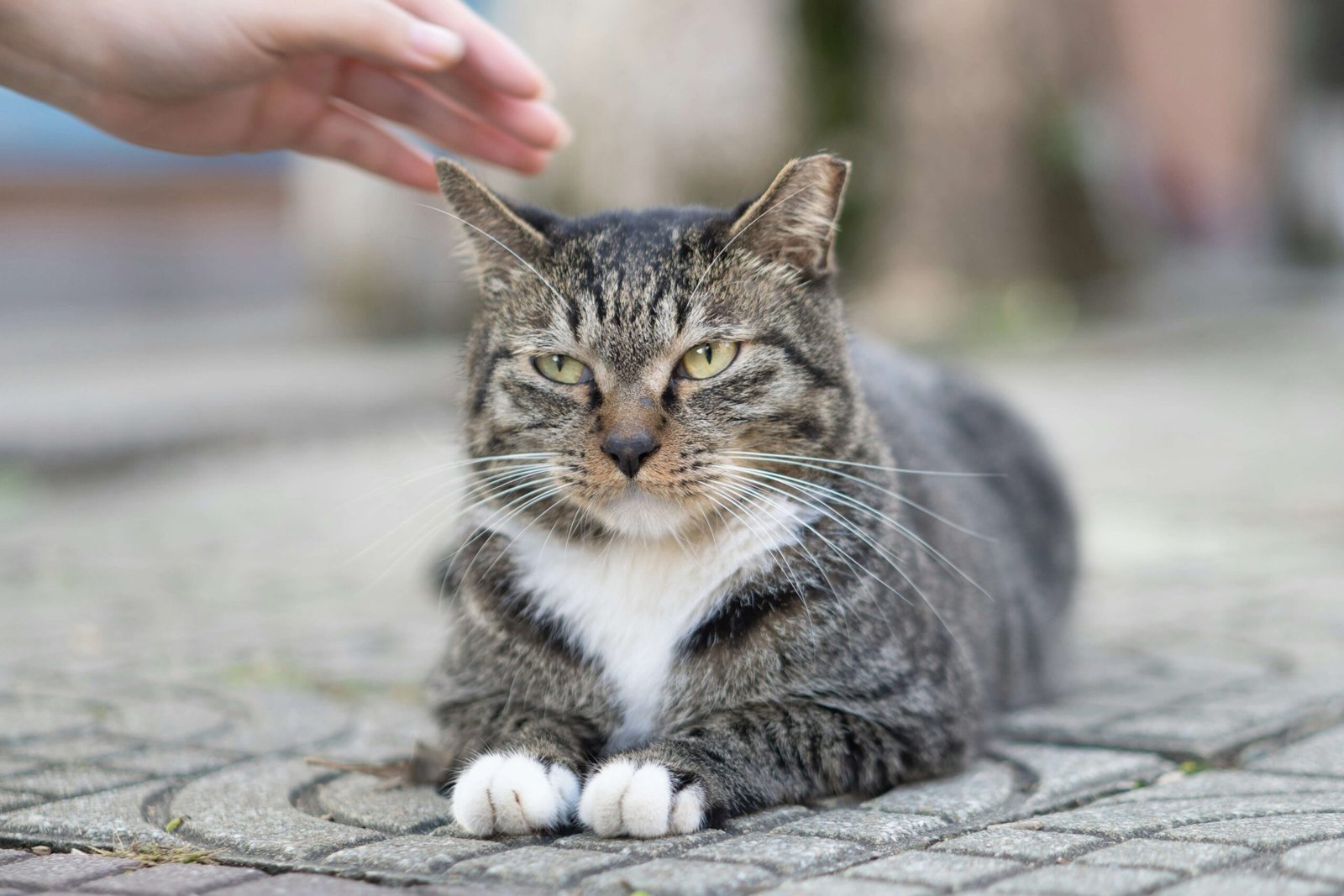Why Is My Cat Not Eating After Vaccination? Understanding the Causes and Solutions
Vaccinations are a crucial part of keeping your cat healthy, protecting them from serious diseases and infections. However, it’s not uncommon for cats to experience temporary side effects after receiving their shots. One of the most concerning behaviors pet owners may notice is a lack of appetite—your cat might refuse to eat or show little interest in food after vaccination. While this can be alarming, it’s often a mild and short-lived reaction. In this blog post, we’ll explore why your cat might not be eating after vaccination, how long this behavior typically lasts, and what steps you can take to ensure their comfort and recovery.
Common Reasons Cats Stop Eating After Vaccination
A cat’s reluctance to eat after vaccination can stem from various factors, ranging from mild discomfort to more significant reactions. Here are some of the most common reasons why your cat might lose their appetite following their shots.
Mild Discomfort or Soreness :
The injection site can become tender or sore, making your cat feel uneasy and less inclined to eat.Fatigue or Lethargy :
Vaccinations can temporarily leave cats feeling tired or unwell, reducing their desire to engage in normal activities like eating.Stress or Anxiety :
The vet visit itself can be stressful, and this emotional response may affect your cat’s appetite.Low-Grade Fever :
Some cats develop a slight fever after vaccination, which can suppress their hunger temporarily.Nausea or Upset Stomach :
Vaccines can occasionally cause mild gastrointestinal upset, leading to a loss of appetite.
While these reactions are generally harmless, they should subside within a day or two. If your cat’s refusal to eat persists beyond this timeframe, it’s important to consult your veterinarian.
Signs That Your Cat’s Lack of Appetite Is Normal
Not all instances of a cat not eating after vaccination are cause for concern. Here are some signs that indicate your cat’s behavior is likely a normal reaction to the vaccine.
Temporary Refusal to Eat :
A brief period of reduced appetite (up to 24-48 hours) is common and usually resolves on its own.Normal Energy Levels :
If your cat remains active and playful despite skipping meals, their lack of appetite is likely mild and temporary.No Other Symptoms Present :
Absence of vomiting, diarrhea, or other concerning symptoms suggests the issue is minor.Interest in Water :
If your cat continues to drink water, dehydration is less of a risk, even if they’re not eating.Improved Appetite Within a Day :
Most cats regain their appetite quickly, often returning to normal eating habits within 24 hours.
If your cat exhibits these signs, it’s likely that their lack of appetite is a normal and short-lived reaction to the vaccination.
Check this guide 👉Understanding the FVRCP Cat Vaccine: Best 7 Health Tips!

When to Monitor at Home | When to Contact the Vet |
|---|---|
Temporary loss of appetite | Persistent refusal to eat for over 48 hours |
Mild lethargy or fatigue | Vomiting or diarrhea accompanying lack of appetite |
No visible pain or swelling | Swelling, redness, or discharge at the injection site |
Drinking water normally | Signs of dehydration (dry gums, sunken eyes) |
Return to normal eating within 24 hours | Behavioral changes like hiding or aggression |
How to Encourage Your Cat to Eat After Vaccination
If your cat isn’t eating after vaccination, there are several ways you can encourage them to regain their appetite. Here are some practical tips to help make mealtime more appealing.
Offer Their Favorite Food :
Serve your cat’s most-loved treats or meals to entice them back to eating.Warm the Food :
Heating canned or wet food slightly can enhance its aroma and make it more enticing.Provide Small Portions :
Offer smaller, more frequent meals instead of one large serving to avoid overwhelming your cat.Create a Calm Environment :
Feed your cat in a quiet, stress-free area to help them feel more comfortable while eating.Hydrate with Broth :
Add a small amount of low-sodium chicken broth to their food to increase moisture and flavor.
By trying these strategies, you can help your cat regain their appetite and ensure they stay hydrated and nourished during this time.
Preventive Measures to Minimize Post-Vaccination Reactions
While mild reactions to vaccines are common, there are steps you can take to reduce the likelihood or severity of side effects. Here are some preventive measures to consider before and after your cat’s vaccination.
Choose a Stress-Free Vet Visit :
Bring familiar items like a blanket or toy to comfort your cat during the appointment.Schedule Vaccinations Strategically :
Avoid scheduling vaccinations during times of high stress, such as moving or introducing new pets.Feed Before the Appointment :
Ensure your cat eats a light meal before the vet visit to prevent nausea or low blood sugar.Monitor for Allergies :
Inform your vet of any previous adverse reactions to vaccines to adjust the treatment plan accordingly.Follow Post-Vaccination Care Advice :
Adhere to your vet’s recommendations for aftercare, including observation and follow-up visits if needed.
By taking these precautions, you can help minimize the chances of your cat experiencing severe side effects after vaccination.
Common Misconceptions About Cats Not Eating After Vaccination
There are several myths surrounding a cat’s lack of appetite after vaccination that can lead to unnecessary worry or misinformation. Let’s debunk some of these misconceptions to help you better understand your cat’s behavior.
Myth: Lack of Appetite Means the Vaccine Was Harmful :
A temporary loss of appetite doesn’t indicate the vaccine was unsafe—it’s often a mild, expected reaction.Myth: Cats Should Eat Immediately After Vaccination :
It’s normal for cats to take a few hours or even a day to regain their appetite after vaccination.Myth: All Cats React the Same Way to Vaccines :
Every cat is unique, and while some may experience side effects, others may show no reaction at all.Myth: You Should Skip Future Vaccinations if Your Cat Stops Eating :
Skipping vaccines puts your cat at risk of serious diseases; side effects are usually minor and manageable.Myth: Loss of Appetite Always Indicates a Severe Reaction :
In most cases, a brief refusal to eat is mild and resolves without intervention.
Understanding these misconceptions can help you approach post-vaccination care with confidence and clarity.
How to Monitor Your Cat’s Health After Vaccination
After your cat receives a vaccine, it’s important to monitor their health closely to ensure they recover without complications. Here are some steps to help you keep track of their well-being.
Check Their Energy Levels :
Observe whether your cat is lethargic or maintaining their usual activity levels.Monitor Food and Water Intake :
Keep an eye on how much your cat is eating and drinking to ensure they stay hydrated and nourished.Look for Physical Symptoms :
Check for swelling, redness, or discharge at the injection site, as these could indicate an adverse reaction.Watch for Behavioral Changes :
Note any unusual behaviors, such as excessive hiding, aggression, or vocalization, which might signal discomfort.Track Recovery Time :
Document how long it takes for your cat to return to their normal routine, including eating and playing.
By staying observant, you can quickly identify any issues and seek veterinary advice if necessary.
When to Seek Immediate Veterinary Attention
While most post-vaccination reactions are mild, certain signs require immediate veterinary care to ensure your cat’s safety. Recognizing these symptoms can make all the difference in addressing potential emergencies.
Persistent Vomiting or Diarrhea :
If your cat experiences frequent vomiting or diarrhea after vaccination, it could indicate a severe reaction.Difficulty Breathing :
Labored breathing or wheezing is a serious symptom that requires urgent attention.Severe Swelling or Hives :
Significant swelling at the injection site or elsewhere on the body may signal an allergic reaction.Collapse or Weakness :
Sudden weakness, collapse, or inability to stand is a medical emergency that needs immediate care.Refusal to Eat or Drink for Over 48 Hours :
Prolonged loss of appetite or dehydration can lead to serious health complications if left untreated.
Being aware of these critical signs ensures you can act quickly to protect your cat’s health and well-being.
Frequently Asked Questions About Cats Not Eating After Vaccination
How long does it take for a cat to start eating after vaccination?
Most cats regain their appetite within 24-48 hours after vaccination. If it lasts longer, consult your vet.
Can vaccines cause nausea in cats?
Yes, some cats may experience mild nausea or gastrointestinal upset after vaccination, which can lead to a temporary loss of appetite.
Should I force my cat to eat after vaccination?
No, forcing your cat to eat can cause stress. Instead, try tempting them with their favorite foods or treats.
What if my cat refuses water too?
If your cat isn’t drinking water, contact your vet immediately to prevent dehydration.
Are certain cats more prone to post-vaccination reactions?
Kittens, senior cats, or those with preexisting health conditions may be more susceptible to side effects.
Final Thoughts: Supporting Your Cat After Vaccination
In conclusion, while it’s not uncommon for cats to stop eating temporarily after vaccination, understanding the causes and knowing how to respond can ease your concerns as a pet owner. Most reactions are mild and resolve quickly, but staying vigilant and monitoring your cat’s behavior is key. By providing a calm environment, offering enticing food options, and seeking veterinary advice when necessary, you can ensure your cat recovers comfortably and continues to thrive. Remember, vaccines play a vital role in safeguarding your cat’s health, and with proper care, any side effects can be managed effectively. Your love and attention will go a long way in helping your feline friend bounce back in no time.
Do Cats Have Taste Buds? Best 7 Expert Tips! – Discover how cats experience flavors and why their taste is so unique.
Do Dogs Have Taste Buds? Best 7 Expert Tips! – Discover how dogs experience taste, their preferences, and what it means for their diet and health.
Can Cats Taste Sweet? Best 7 Expert Tips! – Discover why cats can’t taste sweetness, how it affects their diet, and tips to keep them healthy and happy.
Can Dogs Taste Sweet? Best 7 Expert Tips! – Discover how dogs perceive sweetness, which foods are safe, and tips to manage their sweet cravings responsibly.





